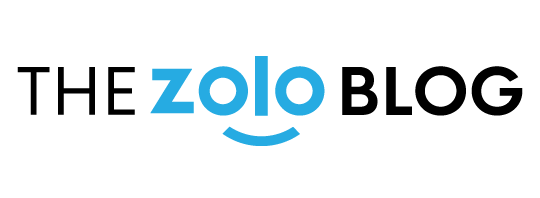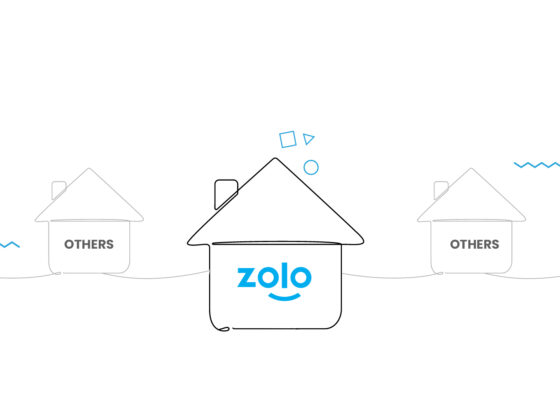Table of Contents

Why Aim for Product-Based Companies?
Product-based companies are at the forefront of innovation, developing and marketing their own products that impact millions of users worldwide. Unlike service-based companies that primarily offer services to other businesses, product-based firms focus on creating solutions that directly address consumer needs. This focus on innovation provides employees with the opportunity to work on cutting-edge technologies, collaborate with talented teams, and see the tangible results of their efforts.
Working in a product-based company not only enhances your technical skills but also exposes you to a collaborative and creative work environment. These organizations often invest heavily in employee growth, offering numerous learning opportunities, mentorship programs, and a culture that fosters continuous improvement. Moreover, the competitive salaries and benefits packages make these companies highly attractive to job seekers.
Related Blog – Top 50 Product-Based Companies to Work for in India in 2024
The Competitive Edge
Securing a position in a product-based company is highly competitive. These companies receive thousands of applications for each opening, making the selection process stringent. However, with the right preparation and mindset, you can distinguish yourself from the pool of candidates. Understanding the interview process, honing your technical and soft skills, and effectively showcasing your experiences are key factors that can give you an edge over others.
Shortlisting Jobs and Resume Preparation
Before diving into interview preparation, it’s essential to shortlist the right job opportunities and craft a compelling resume tailored to your desired role. This foundational step sets the stage for effective interview preparation and increases your chances of landing interviews with your target companies.
Shortlisting the Right Jobs
1. Identify Your Interests and Strengths
Begin by reflecting on what roles align with your passions and skills. Whether you’re inclined towards software development, marketing, design, or any other domain, understanding where your strengths lie will help you focus your job search effectively. Ask yourself questions like:
- What subjects or tasks do I enjoy the most?
- What are my core competencies?
- Where do I see myself thriving in the long run?
2. Research Companies and Roles
Use platforms like Naukri.com, LinkedIn, and company career pages to explore available positions. Look for roles that match your expertise and career aspirations. Pay attention to job descriptions, required qualifications, and the specific skills each role demands. Understanding the nuances of different roles will help you target your applications more effectively.
3. Evaluate Company Culture and Values
Understanding a company’s culture and values is crucial for ensuring a good fit. Read about their mission statements, employee reviews, and any available information on their work environment. Companies like Google and Adobe emphasize innovation and employee growth, which might resonate with your career goals. Assess factors such as:
- Work-life balance
- Opportunities for professional development
- Inclusivity and diversity initiatives
- Company reputation and stability
4. Prioritize Your Applications
Based on your research, create a list of companies and roles that best match your interests and qualifications. Prioritizing your applications helps you manage your efforts efficiently, focusing more on the opportunities that are most aligned with your career objectives. It’s better to apply thoughtfully to a select few roles rather than spreading yourself too thin across numerous applications.
Crafting a Compelling Resume
Your resume is your first impression on potential employers. It needs to be clear, concise, and tailored to the job you’re applying for.
1. Structure Your Resume Effectively
A well-structured resume makes it easier for recruiters to quickly grasp your qualifications and experiences. Ensure your resume includes the following sections:
- Contact Information: Include your name, phone number, email address, and LinkedIn profile.
- Objective Statement: A brief summary highlighting your career goals and what you bring to the role.
- Education: List your degrees, institutions, and any relevant academic achievements.
- Work Experience: Detail your previous roles, responsibilities, and accomplishments. Focus on experiences relevant to the job you’re applying for.
- Skills: Highlight both technical and soft skills that are pertinent to the role.
- Projects: Showcase significant projects that demonstrate your abilities and contributions.
- Certifications and Achievements: Include any relevant certifications, awards, or recognitions.
2. Personalize Your Resume for Each Role
Tailoring your resume ensures that it resonates with the specific job requirements. Here’s how to do it:
- Align Skills with Job Description: Extract keywords from the job posting and incorporate them into your resume. This not only helps in passing Applicant Tracking Systems (ATS) but also makes your resume more relevant to the recruiter.
- Highlight Relevant Projects and Experiences: Emphasize projects and roles that are directly related to the job you’re applying for. For instance, if you’re applying for a software developer position, prioritize coding projects and technical roles.
- Quantify Your Achievements: Use numbers to demonstrate your impact. For example, “Developed a web application that increased user engagement by 30%” or “Managed a team of 5 in a project that delivered results ahead of schedule.”
3. Ensure Clarity and Readability
- Professional Formatting: Use a clean and professional layout with consistent fonts and headings. Avoid clutter and ensure that your resume is easy to read.
- Concise Language: Be clear and to the point. Use action verbs and avoid unnecessary jargon.
- Proofread: Eliminate any grammatical or spelling errors. A flawless resume reflects your attention to detail and professionalism.
4. Build a Strong Portfolio (For Creative and Technical Roles)
A portfolio can significantly enhance your application, especially for design, development, and other creative roles. It should showcase your best work and demonstrate your skills and creativity.
- Include Diverse Projects: Present a range of projects that highlight different aspects of your expertise. For developers, this could include apps, websites, or open-source contributions. For designers, showcase various design projects that demonstrate your versatility.
- Provide Context: For each project, include a brief description outlining the objectives, your role, the tools and technologies used, and the outcomes or impact.
- Make It Accessible: Host your portfolio on platforms like GitHub for code projects or Behance for design projects. Ensure that it is easy to navigate and professionally presented.
Related Blog – Essential Interview Tips to Secure Your Dream Job
Prepare for the Interview
You’ve honed your skills and tailored your resume, now it’s time to prepare for the interview, the crucial step to get a job in a product-based company. Product-based companies often have a multi-stage interview process designed to assess various aspects of your abilities. Understanding this process and tailoring your preparation accordingly can significantly enhance your chances of success.
Understanding the Interview Structure
Product-based companies typically follow a structured interview process that evaluates candidates on multiple fronts. Here’s a breakdown of what you can expect:
- Aptitude and Reasoning Tests:These initial assessments gauge your problem-solving abilities, logical reasoning, and quantitative skills. They are designed to test your ability to think critically and handle numerical data efficiently. Familiarize yourself with common question types and practice regularly to improve your speed and accuracy.
- Technical Rounds:
- For Developers:
These rounds focus on coding tests, data structures, and algorithms. You’ll be required to solve programming problems that demonstrate your technical proficiency and problem-solving skills. Expect questions that assess your ability to write clean, efficient code and optimize solutions. - For Other Roles:
These rounds involve domain-specific questions and case studies relevant to your field. For instance, a marketing specialist might be asked to devise a marketing strategy for a new product launch, while a product manager could be tasked with developing a product roadmap. These assessments evaluate your practical knowledge and ability to apply theoretical concepts to real-world scenarios.
- For Developers:
- HR Round:The final stage assesses your cultural fit within the company. Interviewers evaluate your soft skills, communication abilities, and how well your values align with the company’s mission and work environment. This round may include questions about your career goals, strengths and weaknesses, and how you handle workplace challenges.
Understanding this structure helps you prepare effectively for each stage, ensuring you present yourself as a well-rounded candidate.
Technical Preparation
For Freshers – Coding Roles
- If you’re a fresher aiming for a coding role, your technical preparation should be both thorough and consistent.
- Start by mastering the fundamentals of programming languages like Java, C++, or Python. It’s not just about knowing the syntax; understanding how to apply data structures and algorithms to solve real-world problems is crucial.
- Platforms like HackerRank, LeetCode, and GeeksforGeeks offer a plethora of coding challenges that can help you sharpen your skills. Regular practice will not only improve your coding speed but also enhance your problem-solving abilities.
- Revising core concepts is equally important. Dive deep into data structures such as arrays, linked lists, stacks, and queues, and algorithms like sorting and searching. Additionally, gaining a basic understanding of system design can set you apart from other candidates.
- Mock interviews are invaluable in this phase. Simulating real interview scenarios with friends or using online services can help you get accustomed to the pressure and format of actual interviews, allowing you to articulate your thought process clearly and confidently.
Related Blog – How to Get an Internship with No Experience?
For Freshers – Non Technical Roles
- Preparing for non-coding roles like marketing, sales, design, or management requires a different approach, focusing more on domain-specific knowledge and practical applications. Start by thoroughly understanding the role you’re applying for.
- If you’re eyeing a marketing position, familiarize yourself with digital marketing tools, content creation, and SEO strategies.
- For design roles, proficiency in tools like Adobe XD or Figma and a strong portfolio showcasing your creativity are essential.
- Building a strong portfolio is a key component for non-coding roles. Whether it’s showcasing marketing campaigns you’ve conceptualized, designs you’ve created, or sales strategies you’ve implemented, your portfolio should highlight your skills and achievements.
- Additionally, developing soft skills such as effective communication, teamwork, and leadership can significantly boost your profile. Be prepared to discuss your work in detail during interviews, emphasizing your contributions and the impact of your efforts.
Related Blog – How to Get a Job in a Product-Based Company? – The Ultimate Guide
For Experienced Professionals – Coding Roles
- Experienced candidates are often expected to have a deeper understanding and practical experience. Advanced concepts like system design become paramount. You should be comfortable designing scalable systems, discussing architecture, and understanding how different components interact.
- Delve into topics like load balancing, database management, and microservices architecture. Highlighting your professional experience through significant projects and the technologies you’ve worked with can demonstrate your expertise and readiness for complex challenges.
- Staying updated with the latest trends in technology is crucial. Continuous learning through courses, certifications, and staying engaged with the tech community ensures that your knowledge remains relevant. Mock interviews tailored to your experience level can help you practice articulating your thoughts and handling advanced technical questions with ease.
For Experienced Professionals – Non-Coding Roles
- For experienced professionals in non-coding roles, showcasing your achievements and leadership abilities is key. Highlighting significant contributions in your previous roles, such as successful marketing campaigns, sales growth, or efficient team management, can set you apart. Use metrics to quantify your achievements- for example, “Increased sales by 30%” or “Led a team of 10 to successfully launch a new product.”
- Leadership and management skills are highly valued in non-coding roles. Be prepared to discuss instances where you’ve led teams, managed projects, or implemented strategies that drove success.
- Additionally, having a strong grasp of industry knowledge, understanding market trends, and being able to analyze competitor strategies can demonstrate your strategic thinking and business acumen.
Related Blog – How to Switch from Service-Based to Product-Based Companies?
Soft Skills and Behavioral Questions
Regardless of whether you’re applying for a coding or non-coding role, soft skills and the ability to navigate behavioral questions play a significant role in the interview process. Interviewers seek candidates who not only possess the technical expertise required for the role but also demonstrate strong communication skills, problem-solving abilities, and a cultural fit with the organization.
Common Questions
Expect questions like:
- “Tell me about yourself.”
- “Why do you want to join our company?”
- “Describe a challenging situation and how you handled it.”
These questions aim to understand your motivations, problem-solving abilities, and how you handle real-world challenges.
Tips for Success
- Be Honest and Authentic: Authenticity resonates well with interviewers. Share genuine experiences and insights.
- Use the STAR Method: Structure your responses using the Situation, Task, Action, Result framework to provide clear and concise answers.
- Show Enthusiasm and Willingness to Learn: Demonstrate your passion for the role and your eagerness to grow within the company.
Effective communication techniques, such as clarity and conciseness, active listening, and positive body language, can significantly enhance your performance during behavioral rounds. Building confidence through mock interviews and practicing your responses can help you articulate your thoughts more effectively and present yourself as a poised and capable candidate.
Related Blog – How to Switch from Service-Based to Product-Based Companies?
Final Tips
To wrap up your interview preparation, consider these final pointers that can make a significant difference:
- Research:
Revisit the company’s products, recent news, and any updates that can provide context during your interview. Demonstrating up-to-date knowledge shows your genuine interest and dedication. - Dress Professionally:
First impressions matter. Dressing appropriately for the company’s culture—whether it’s formal business attire or smart casual—can positively influence your interview outcome. - Punctuality:
Arrive early for your interview, whether it’s virtual or in-person. Being punctual reflects your professionalism and respect for the interviewer’s time. - Stay Calm and Focused:
It’s natural to feel nervous, but maintaining your composure is key. Take deep breaths, stay focused on the questions, and pace yourself throughout the interview.
By thoroughly understanding the interview structure, preparing diligently for both technical and non-technical aspects, and honing your soft skills, you’ll be well-equipped to navigate the interview process of product-based companies successfully.
Conclusion
Preparing for interviews at product-based companies may seem daunting, but with the right approach and dedication, it’s entirely achievable. Here’s a quick recap of the key strategies to help you succeed:
- Shortlist the Right Jobs:
Identify roles that align with your interests and strengths. Research companies and prioritize your applications based on fit and opportunities. - Craft a Compelling Resume:
Tailor your resume for each role, highlighting relevant projects, skills, and achievements. Ensure clarity, conciseness, and professionalism in your resume presentation. - Technical and Domain Preparation:
For coding roles, master data structures, algorithms, and system design. For non-coding roles, focus on domain-specific knowledge and practical applications. - Enhance Soft Skills:
Develop effective communication, problem-solving, and teamwork skills. Prepare for behavioral questions using the STAR method to showcase your experiences and capabilities. - Engage in Mock Interviews:
Practice through mock interviews and group discussions to build confidence and receive constructive feedback. - Network Effectively:
Leverage platforms like LinkedIn to connect with professionals in your desired field. Attend webinars and workshops to expand your network and gain industry insights. - Stay Updated and Keep Learning:
Continuously update your knowledge with the latest industry trends, pursue relevant courses and certifications, and engage with professional communities to foster growth.
Remember, every interview is a learning opportunity. Stay persistent, keep practicing, and maintain a positive attitude throughout your preparation journey.
Surround yourself with supportive peers and mentors, and leverage resources like ZoloStays vibrant community to stay motivated and inspired.
Believe in yourself, and your dream job at a product-based company is within reach!
All the best on your journey to success!










